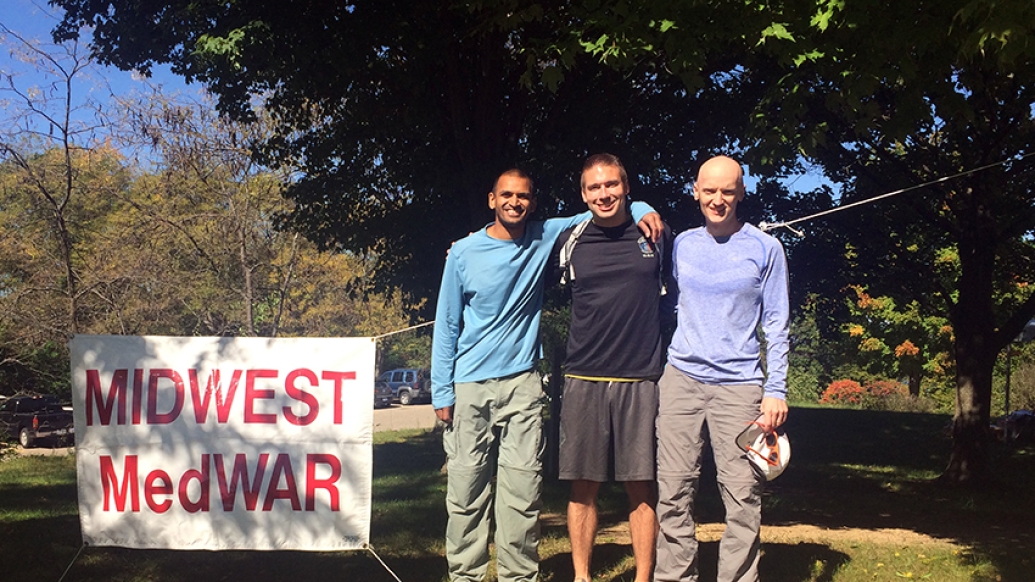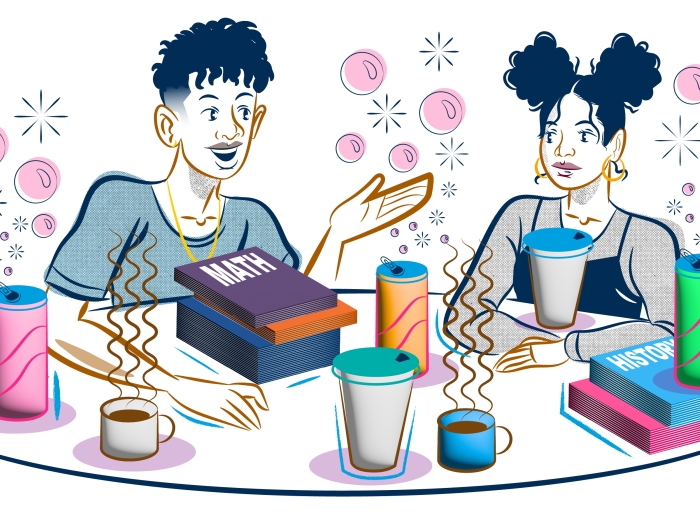A U-M resident and two fellows put their wilderness emergency medicine training — and fitness —to the test, and won.
1:00 PM
Author |

Joe Betcher, M.D., Al Majkrzak, M.D., and Arun Ganti, M.D., have always enjoyed the great outdoors.
"We all like backpacking, running and just being outdoors in general," Betcher says.
SEE ALSO: 5 Facts About Survival Flight, U-M's Critical Care Air Transport Team
Betcher and Majkrzak are emergency medicine ultrasound fellows at the University of Michigan, and Ganti is a third-year emergency medicine resident. All three enjoyed being lead instructors for the wilderness medicine elective course held every September within the U-M Medical School.
So when the three found out about MedWAR, wilderness medicine races for health care professionals and emergency personnel, they knew it would be right in their wheelhouse.
"We knew that we could work together well, given our prior experience," Betcher says. "This year was mine and Al's third time competing in the race, and Arun's fifth time. We've met and competed against teams from other universities across the Midwest."
MedWAR puts on races across the country that test participants' ability to perform medical challenges while in wilderness settings.
This year's Midwest race, which took place Oct. 8 at Pinckney Recreation Area in Pinckney, Michigan, consisted of around 15 miles of wilderness trail runs and required teams to carry their own gear while encountering frequent medical scenarios that may be seen in the wilderness.
Supplies included rope, tarps, splints and small supplies consisting of over a dozen different medications to treat emergencies in the wilderness. They were even required to carry a fake infant for 13 miles, which they first had to rescue at the beginning of the race. To prepare, Betcher says they've all been running a lot to stay in shape, plus Ganti bikes to work every day.
"We had to treat victims that endured gunshot wounds, bear attacks and snake bites and had to rescue drowning victims," Betcher says. "We had to do a 4-mile canoeing section as well as navigate through the woods in the pitch black of night to find checkpoints, all while carrying all of our own gear."
Teams are judged at each medical challenge, and if the team cannot perform the task, time is added to its overall completion time.
For the U-M group, the third time at Midwest MedWAR turned out to be the charm. The team took home first place in the competition.
"It was exciting," Betcher says. "You win some outdoor and camping supplies, but it was most exciting to be the first U-M team to win."
He explains it's the thrill of the competition that keeps them interested each year.
"Everyone starts out confused trying to read the map you're given, and you have to learn to navigate and get oriented with where you are," he adds. "As soon as the competition starts you have to work together as a team if you want to win."
The team looks to regroup next year and try to win another medal. They have even discussed representing U-M in one of the other seven MedWAR events held in other regions of the country.

Explore a variety of health care news & stories by visiting the Health Lab home page for more articles.

Department of Communication at Michigan Medicine
Want top health & research news weekly? Sign up for Health Lab’s newsletters today!





